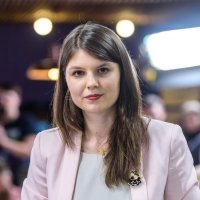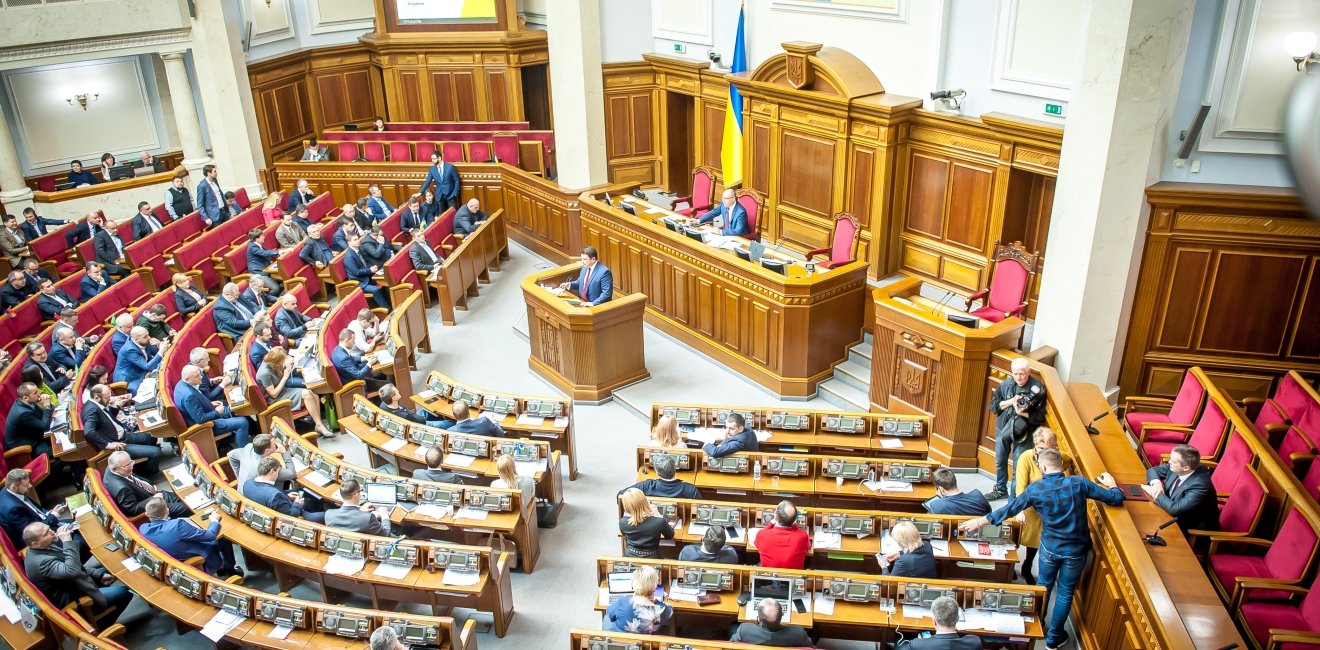
A blog of the Kennan Institute
BY KATERYNA ODARCHENKO
Corruption remains an intractable problem in Ukraine. It stands in the way of the country’s economic development and has unduly affected the lives of ordinary citizens, who gain no benefit from it. The upcoming presidential elections, scheduled for March 31, will offer voters an opportunity to weigh in on which of the candidates’ proposed remedies they prefer.
The persistence of corruption owes not to any lack of trying to eliminate it. Post-Maidan Ukraine has undertaken several steps toward halting corruption and installing a system of good governance. New anticorruption laws have been approved and new anticorruption organizations have been created, including the National Agency for Corruption Prevention, the National Anti-Corruption Bureau, and the Special Anti-Corruption Prosecutor’s Office. However, these steps have not sufficed to rein in corruption, and, despite prodding from the IMF and other Western organizations, corruption remains one of the biggest obstacles to Ukraine’s economic development.
According to recent polls, the second most important issue for Ukrainians, after the war in the Donbas, is corruption. External rating agencies underscore the seriousness of the problem. On Transparency International’s Corruption Perceptions Index, Ukraine ranks 130 out of 180 countries, in the neighborhood of Iran, Sierra Leone, and Gambia. To define the level of corruption in Ukraine, the World Bank finds that 2 percent of politically connected companies control an ever-larger portion of the national economy. Ernst & Young’s Global Fraud Survey ranked Ukraine at the forefront of corruption among the 41 countries surveyed.
It is thus not surprising that fighting corruption is one of the most common topics of discussion in the presidential campaign season, with different candidates offering different remedies and perspectives.
Forty-four presidential candidates are officially registered, the most in independent Ukraine’s history. According to recent polls (the Rating Group and the Razumkov Center), the five candidates with the most support are Volodymyr Zelenskiy, who is supported by 19.0 percent of respondents who have decided on a candidate and are likely to vote; Yulia Tymoshenko, at 18.2 (13.8) percent, respectively; incumbent president Petro Poroshenko, at 15.1 (16.8) percent, respectively; Yuriy Boyko, at 10 (7.1) percent; and Anatoliy Hrytsenko, at 8.5 (7.3) percent.
Volodymyr Zelenskiy, by profession a film director and actor, who has unexpectedly become the leading candidate, has singled out corruption as the core problem of the Ukrainian political system. His platform emphasizes "zero tolerance” of corruption and transparency in budgeting and public procurement processes. Zelenskiy recently convened a public meeting with several anticorruption leaders, including head of the Anti-Corruption Action Center Vitaliy Shabunin and Sergey Leshchenko, a Ukrainian MP and member of the Interfactional Union Euro-optimists. During this meeting, Zelenskiy promised to ensure independence of the key anticorruption institutions, restrict the authority of regulatory agencies, and maintain oversight of the General Prosecutor’s Office by international and local civic organizations. However, he has not proposed specific mechanisms for fighting corruption and seems to rely on popular slogans as a way to attract more supporters.
Yulia Tymoshenko, whose popularity remains high but stagnating, has a clearly defined approach to handling corruption. Her platform, which goes under the title of “New Course for Ukraine,” indicates that under a Tymoshenko administration, the anticorruption struggle would be guided by an independent judiciary under the control of civil society. She has proposed creating a National Assembly of Self-Government, a tool for local communities to balance parliamentary actions, that would have the right to veto any parliament-approved law with a possible corrupt element. This would mean changing the constitution to disperse certain parliamentary authorities.
Additionally, Tymoshenko suggests increasing the role of the opposition in the control of government: the Accounting Chamber, major state regulatory bodies, and parliamentary investigative commissions would be handed over to the opposition—any group not part of the governing coalition.
Her platform also includes a “fight against offshore accounts,” intended to prevent money laundering and capital flight, and a taxation regime for small and medium-sized businesses that folds in incentives for SMBs to avoid participating in corruption. So far, Tymoshenko's electoral platform is the most aggressive on corruption and approaches remediation from multiple angles.
Petro Poroshenko, Ukraine’s current president, has not made combating corruption a centerpiece of his campaign. As he himself has pointed out, the media attention to the problem of corruption in Ukraine is exaggerated. Nonetheless, a June 18, 2018, article in the Washington Post portrayed Poroshenko boasting that in the fifth year of his presidency, he had managed to get the law on the Anti-Corruption Court adopted; that court is being organized now.
In his recent interviews and speeches, Poroshenko has laid more emphasis on fighting corruption. He has expressed interest in establishing stronger citizen control over the appointment of judges and creating a system for their autonomous functioning, such that the judiciary would be truly independent of the legislative and executive branches of government—a necessary step in combating corruption.
In general, though, Poroshenko’s reelection bid is weighed down by controversies that swirl around the presidency and parliament in connection with the Ukrainian army’s activities, Ukraine’s language laws, autocephaly of the Eastern Orthodox Church in Ukraine, and how national unity can best be furthered. Thus, his election campaign mainly focuses on his achievements in macroeconomic stability and a visa-free regime with the EU countries.
Yuriy Boyko’s platform stresses that, according to the Federation of Employers of Ukraine, corruption of officials costs the state and the Ukrainian people at least 160 billion hryvnias annually. This enormous amount has functionally put the brakes on Ukraine’s development.
Boyko suggests making links between the government and Ukrainian business circles as transparent as possible. However, he still feels that only when Ukrainians reject bribery as a mechanism for doing business will success in this field be possible.
Boyko also proposes raising social standards. The main emphasis here in his platform is on ways to offset rising costs of living and reduce military spending.
Anatoliy Hrytsenko, former minister of defense, advocates a moratorium on land sales—legally allowed but continually postponed in Ukraine—and promises to continue cooperation with the IMF. According to his platform, not only the capitalization of land but also that of all natural resources should increase by a factor of ten. He believes this would raise the living standards of Ukrainians to the level enjoyed by Europe more broadly. In addition, he promises a significant increase in workers’ wages and pensions. Fighting corruption is an important point of his platform, but he has not articulated any substantive proposals toward this end.
With a robust national debate about corruption being conducted during the 2019 presidential campaign season, Ukraine stands a chance of reviving reforms aimed at good governance and of implementing effective anticorruption measures. When Ukrainians go to the polls in March, they will be evaluating candidates according to the real solutions they offer to real problems, including lessening the burden of corruption on ordinary citizens and smaller businesses.
Author


Kennan Institute
The Kennan Institute is the premier US center for advanced research on Eurasia and the oldest and largest regional program at the Woodrow Wilson International Center for Scholars. The Kennan Institute is committed to improving American understanding of Russia, Ukraine, Central Asia, the South Caucasus, and the surrounding region through research and exchange. Read more

Explore More in Focus Ukraine
Browse Focus Ukraine
Talking to the Dead to Heal the Living

Ukrainian Issue in Polish Elections


